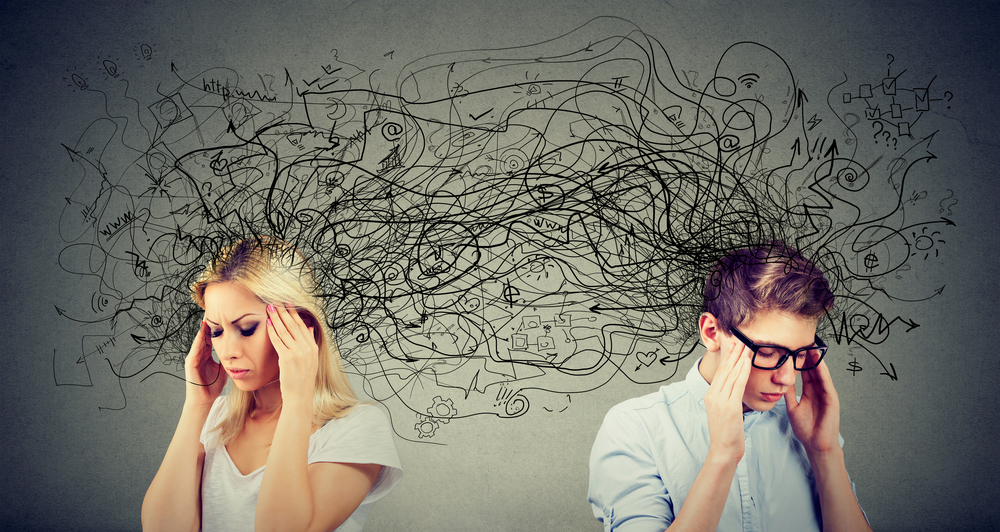October is ADHD Awareness Month, a reminder that attention-deficit/hyperactivity disorder is more than a childhood condition. It’s a lifelong neurodevelopmental difference that shapes how adults think, feel, and connect, and for couples, it can bring both passion and pressure.
In the early days, relationships touched by ADHD can feel exhilarating. There’s energy, humor, creativity, and a sense of being fully alive together. But what begins as spontaneity may, over time, shift into stress. Missed appointments, forgotten chores, and uneven responsibilities pile up. One partner may feel exhausted from keeping things on track, while the other feels like they can never get it right. This cycle of frustration doesn’t mean love is lacking—it means the challenges of ADHD are at play.
When Connection Starts to Slip
ADHD affects roughly 5% of adults, and its influence on relationships is often underestimated. While many think it’s only about distraction, ADHD is really about the regulation of attention, time, emotions, and stress. In a partnership, those challenges can create misunderstandings that gradually erode trust.
For the non-ADHD partner, it can feel like carrying the entire relationship, including handling logistics, emotions, and planning. For the ADHD partner, the experience may be one of constant failure, shame, or being unfairly criticized. Over time, couples can slip into a parent-child dynamic that damages intimacy and connection.
The Many Faces of ADHD in Relationships
ADHD doesn’t look the same in everyone. In adults, it can appear as:
- The dreamer who’s loving but always running late
- The enthusiastic starter who struggles to finish projects
- The perfectionist masking overwhelm with control
- The emotionally reactive partner who regrets words said in anger
- The avoider who goes quiet when stress feels too heavy
Because ADHD often coexists with anxiety, depression, or trauma, the picture becomes even more layered. And since ADHD tends to be “consistently inconsistent,” it can be confusing for a partner when their loved one is fully engaged one day and checked out the next. Recognizing these shifts as neurological rather than intentional is the first step toward empathy and change.
The Strain of Parenting with ADHD
For many couples, the birth of a child magnifies the strain. Parenting requires near-constant coordination, patience, and multitasking, which are areas where ADHD can make things especially challenging.
The non-ADHD partner may take on even more, sliding into “project manager” mode, while the ADHD partner becomes overstimulated and avoidant. Add sleep deprivation, emotional highs and lows, and possibly a child with ADHD (since it’s highly heritable), and the household can feel like it’s running on fumes.
It’s often at this point that couples seek therapy, sometimes wondering if they’ve waited too long. The truth is, it’s never too late to shift the patterns.
Five Ways to Break the Cycle
While ADHD can’t be removed from the equation, couples can learn to manage its impact. Here are five strategies that can make a real difference:
- Name the patterns. ADHD shapes time management, attention, and emotions in ways that can look like carelessness. Recognizing the difference between wiring and intention opens the door to compassion. Support through therapy, coaching, or medication can help.
- Build systems, not willpower. Trying harder rarely works for ADHD. Instead, structure the environment for success with shared calendars, reminders, visual boards, or short check-in sessions.
- Share the load fairly. Invisible labor adds up fast. Tools like the “Fair Play” method or a “Who Does What” list can help partners renegotiate roles without blame.
- Repair quickly. Emotional blowups or shutdowns will happen. What matters is reconnecting. Agree on reset rituals, like taking a short break, grounding, or simply asking to “try again.”
- Protect the spark. ADHD brings intensity and creativity, but these strengths can fade under stress. Make time for joy, whether through a walk, cooking together, or something silly that reminds you why you chose each other.
From Frustration to Partnership
The very traits that ignite attraction in ADHD relationships, like spontaneity, passion, and depth, can become sources of tension when life shifts to routines and responsibilities. But ADHD doesn’t have to break a relationship. With understanding, structure, and support, couples can move beyond cycles of resentment and shame and build partnerships that feel both steady and alive.





